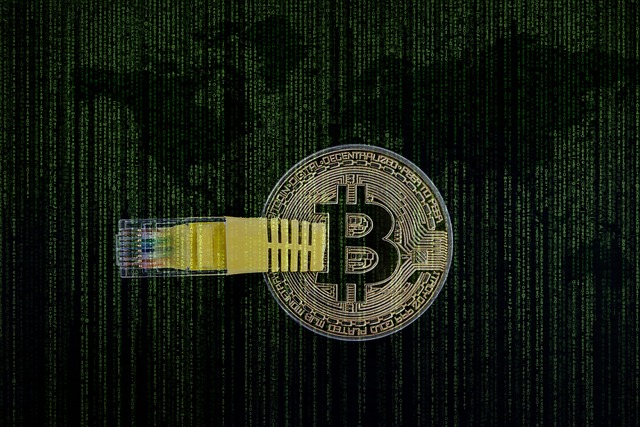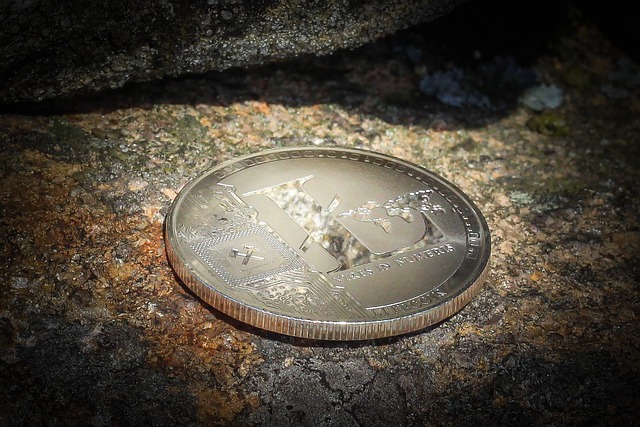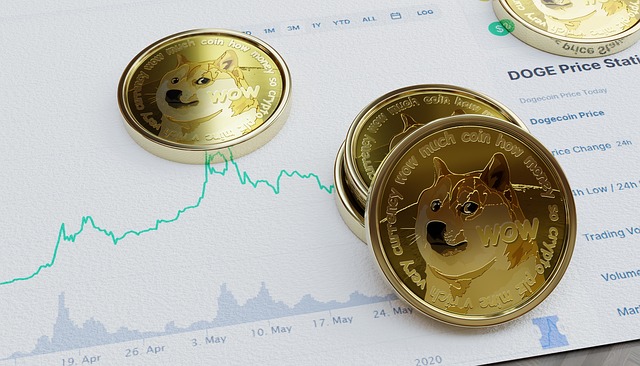Decentralized Finance Investment Risks: Protecting Your Portfolio
Decentralized Finance Investment Risks: Protecting Your Portfolio

What is Decentralized Finance (DeFi) and Why is it Popular?
Decentralized Finance, more commonly known as DeFi, has emerged as a revolutionary concept within the realm of finance. Unlike traditional financial systems that rely on centralized intermediaries such as banks and financial institutions, DeFi operates on decentralized networks, making it more inclusive, transparent, and accessible to individuals across the globe. This decentralized nature allows users to engage in various financial activities, including lending, borrowing, trading, and investing, without the need for intermediaries.
One of the key reasons behind the popularity of DeFi is its potential to democratize finance. By eliminating the need for intermediaries, DeFi opens up financial opportunities to anyone with internet access, regardless of their geographical location or economic status. This inclusivity has garnered significant attention from both individual investors and institutions alike, as it introduces a new level of financial freedom and empowerment. Additionally, DeFi has gained popularity due to its ability to provide higher levels of transparency compared to traditional financial systems. With decentralized networks powered by blockchain technology, transactions and contracts are recorded publicly and cannot be tampered with, ensuring a high level of trust and security in the system. This enhanced transparency not only reduces fraud but also inspires confidence in users, attracting more participants to DeFi platforms.
Understanding the Risks Associated with DeFi Investments
Investing in Decentralized Finance (DeFi) can be highly enticing, with the potential for lucrative returns and the promise of disrupting traditional financial systems. However, it is essential to understand the risks associated with DeFi investments before diving in. One of the main risks is the inherent volatility of the market. Prices of various DeFi tokens can fluctuate wildly, sometimes within a matter of minutes. This can result in substantial gains, but it can also lead to significant losses if you are not careful.
Another risk to consider is the potential for technical vulnerabilities and smart contract bugs. DeFi platforms operate on decentralized networks, making them susceptible to hacking attempts and security breaches. Even the most reputable platforms can fall victim to these attacks, causing investors to lose their hard-earned funds. Additionally, there have been instances of smart contracts containing coding errors or vulnerabilities, leading to unexpected consequences or exploitation by malicious actors. It is crucial to thoroughly research and ensure the security measures taken by a DeFi platform before entrusting your investments.
The Importance of Conducting Thorough Research before Investing
When it comes to investing in decentralized finance (DeFi), conducting thorough research is of utmost importance. With the immense popularity and potential for high returns in the DeFi space, it is crucial to take the time and effort to gather as much information as possible before making any investment decisions.
Researching allows investors to gain a deeper understanding of the projects and protocols they are considering, helping them to identify the most promising opportunities and avoid potential pitfalls. By delving into the details of a project, investors can assess its overall viability, the team behind it, the technology being used, and the potential risks involved. Through diligent research, investors can gather insights and necessary knowledge that will enable them to make informed decisions and navigate the ever-evolving landscape of DeFi investments.
Identifying Potential Scams and Fraudulent Projects in DeFi
In the world of decentralized finance (DeFi), where innovation and opportunities abound, it is essential for investors to be cautious and vigilant when it comes to identifying potential scams and fraudulent projects. With the rise in popularity of DeFi, scammers have been quick to capitalize on unsuspecting investors, employing various tactics to deceive and defraud them of their hard-earned money.
One of the first steps in identifying potential scams is to scrutinize the project’s legitimacy and credibility. This can be done by conducting thorough research on the team behind the project, their experience, and their track record. It is also crucial to assess the project’s whitepaper and roadmap, looking for any red flags or discrepancies. Additionally, checking the project’s online presence, such as social media channels and forums, can provide valuable insights into the community’s perception and feedback. By arming oneself with knowledge and critical thinking, investors can protect themselves from falling victim to fraudulent schemes in the rapidly evolving world of DeFi.
Managing the Volatility and Market Fluctuations in DeFi Investments
While decentralized finance (DeFi) offers exciting opportunities for investors, it also comes with its fair share of volatility and market fluctuations. Managing these ups and downs is crucial to ensuring the sustainability of your investments. One key strategy to consider is setting realistic expectations and being prepared for market fluctuations. The value of DeFi assets can rise and fall rapidly, so it’s essential to remain level-headed and avoid making impulsive decisions based on short-term price movements.
Another important aspect of managing volatility in DeFi investments is diversification. By spreading your investments across multiple DeFi projects and asset types, you can mitigate the risk of significant losses caused by sudden market swings.

The Role of Smart Contracts in DeFi and their Potential Risks
Smart contracts play a pivotal role in the world of decentralized finance (DeFi). These self-executing contracts ensure that transactions are carried out automatically, without the need for intermediaries or third parties. By leveraging blockchain technology, smart contracts facilitate DeFi protocols and enable users to engage in various financial activities such as lending, borrowing, and trading in a decentralized manner.
However, as with any technology, smart contracts in DeFi are not without their potential risks. One of the primary concerns is the code vulnerability. Smart contracts are powered by computer code, and any bugs or vulnerabilities in the code can be exploited by malicious actors. This can result in the loss of funds or the manipulation of transactions. It is crucial for developers and users alike to thoroughly audit and test smart contracts to ensure their security and reliability. Furthermore, the immutability of smart contracts poses another risk. Once a smart contract is deployed on the blockchain, it cannot be altered or reversed.

Protecting Your Portfolio from Security Breaches and Hacks
In the world of decentralized finance (DeFi), protecting your portfolio from security breaches and hacks is of utmost importance. As the use of blockchain technology continues to grow, so does the risk of cyberattacks and the potential loss of funds. Therefore, it is crucial for investors to take proactive measures to safeguard their investments.
One way to protect your portfolio is by choosing reputable platforms and projects. Conduct thorough research and due diligence before investing your hard-earned money. Look for projects that have a strong track record, transparent information, and a solid reputation in the community. Additionally, consider the security measures implemented by the platform, such as encryption protocols, multi-factor authentication, and regular security audits. By selecting trustworthy platforms and projects, you can mitigate the risk of falling victim to scams or fraudulent activities.
The Importance of Diversification in DeFi Investments
When it comes to investing in decentralized finance (DeFi), diversification is key. Diversification refers to spreading your investments across different projects and assets, rather than putting all your eggs in one basket. This strategy helps to mitigate risk and protect your portfolio from potential losses.
One of the main advantages of diversifying your DeFi investments is that it allows you to take advantage of the potential growth in different sectors. Each project in the DeFi ecosystem comes with its own set of risks and rewards, and by investing in a variety of projects, you can increase your chances of finding those that will deliver positive returns. Additionally, diversification can help to lessen the impact of any potential losses from one particular project or asset, as the gains from other investments can offset these losses. By spreading your investments across different DeFi projects, you are essentially hedging against the risk of any single project underperforming or failing.
In conclusion, diversification is crucial in DeFi investments as it helps to minimize risks and maximize potential returns.

• Diversification in DeFi investments helps mitigate risk and protect your portfolio from potential losses
• Investing in a variety of projects allows you to take advantage of the potential growth in different sectors
• By spreading your investments, you increase your chances of finding projects that deliver positive returns
• Diversification lessens the impact of any potential losses from one particular project or asset
• Hedging against the risk of any single project underperforming or failing is possible through diversifying investments
• Diversification minimizes risks and maximizes potential returns in DeFi investments
• Thorough research and understanding the risks associated with each investment are equally important for success
• Carefully assessing and diversifying your DeFi investment portfolio optimizes chances of success
Considering Regulatory and Legal Risks in DeFi Investments
It is crucial for investors to carefully consider the regulatory and legal risks associated with decentralized finance (DeFi) investments. Unlike traditional financial systems, DeFi operates in a decentralized manner, often without the involvement or oversight of traditional regulatory bodies. This lack of regulation can offer advantages such as increased accessibility and transparency, but it also introduces potential risks that investors should be aware of.
One of the main concerns related to regulatory and legal risks in DeFi is the potential for fraud and scams. With the absence of centralized control, there is an increased risk of malicious actors taking advantage of unsuspecting investors. Ponzi schemes, fake projects, and fraudulent tokens can easily find their way into the DeFi space, posing a significant threat to investors’ funds. Therefore, it is essential for investors to conduct thorough research and due diligence before engaging in any DeFi investment to identify potential warning signs and avoid falling victim to such scams.
Understanding the Potential Impact of Economic Factors on DeFi Investments
One of the key factors that can have a significant impact on DeFi investments is the overall state of the economy. When the economy is thriving, people are generally more confident in investing their money and taking on risks. This can lead to increased participation in DeFi platforms and projects, resulting in higher demand for decentralized finance products. On the other hand, during times of economic uncertainty or recession, investors may become more risk-averse and hesitant to allocate funds to DeFi investments. This can lead to a decrease in activity within the DeFi space and potentially affect the value of existing investments.
Additionally, economic factors such as inflation and interest rates can also influence the performance of DeFi investments. Inflation, for example, reduces the purchasing power of money over time. This means that if the rate of inflation is higher than the returns generated by a DeFi investment, the actual value of the investment may decline in real terms. Similarly, changes in interest rates can impact the attractiveness of DeFi investments. Higher interest rates could make traditional financial instruments more appealing to investors, potentially diverting funds away from DeFi projects. Therefore, it is essential for individuals interested in DeFi investments to stay informed about economic indicators and their potential implications for decentralized finance.
What is Decentralized Finance (DeFi) and Why is it Popular?
Decentralized Finance, or DeFi, refers to the use of blockchain technology and smart contracts to provide financial services without the need for intermediaries like banks. It has gained popularity because it offers users greater control over their funds, lower fees, and the ability to access financial services globally.
What are the risks associated with DeFi investments?
DeFi investments come with several risks, including smart contract vulnerabilities, market volatility, potential scams or fraudulent projects, and security breaches or hacks. It’s important to thoroughly research and understand these risks before investing.
How can I protect my portfolio from security breaches and hacks in DeFi?
To protect your portfolio, you should use secure and reputable platforms, implement strong security measures such as two-factor authentication, and be cautious when interacting with unfamiliar projects. Regularly monitoring your investments and staying updated on security best practices is also crucial.
Why is conducting thorough research important before investing in DeFi?
Thorough research helps you understand the project’s fundamentals, team credibility, potential risks, and market conditions. It allows you to make informed decisions and reduces the chances of falling victim to scams or investing in unsustainable projects.
How can I identify potential scams and fraudulent projects in DeFi?
Look for red flags such as anonymous teams, unrealistic promises of high returns, lack of transparency, and projects that pressure you to invest quickly. Always verify the project’s legitimacy, read reviews, and engage with the community to gather more information.
How do economic factors impact DeFi investments?
Economic factors such as inflation, interest rates, and market demand can significantly affect the value and stability of DeFi investments. Understanding these factors and staying updated on economic trends can help you make better investment decisions and manage risks in DeFi.
What role do smart contracts play in DeFi, and what are their potential risks?
Smart contracts automate transactions and enforce predetermined rules in DeFi. While they offer transparency and efficiency, they are also vulnerable to code bugs or exploits, which can lead to financial losses. It’s important to carefully review and audit smart contracts before investing.
Why is diversification important in DeFi investments?
Diversification helps mitigate risks by spreading your investments across different projects and asset types. By diversifying, you reduce the impact of potential losses from a single investment and increase the chances of overall portfolio growth.
What regulatory and legal risks should I consider in DeFi investments?
DeFi operates in a rapidly evolving regulatory landscape, and it’s important to consider the legal implications and potential regulatory changes that could impact your investments. Stay informed about local regulations and consult with legal professionals if necessary.
How can I manage the volatility and market fluctuations in DeFi investments?
Volatility is inherent in DeFi investments, and it’s important to set realistic expectations and avoid making impulsive decisions based on short-term market movements. Develop a long-term investment strategy, stay updated on market trends, and consider risk management techniques such as stop-loss orders.
Todays Featured Product:
Buy, exchange and grow your crypto securely with a Ledger hardware wallet, combined with the Ledger Live app. It’s never been easier to keep your crypto safe and accessible. Buy direct from Ledger.com and get todays Special Offers Here.




